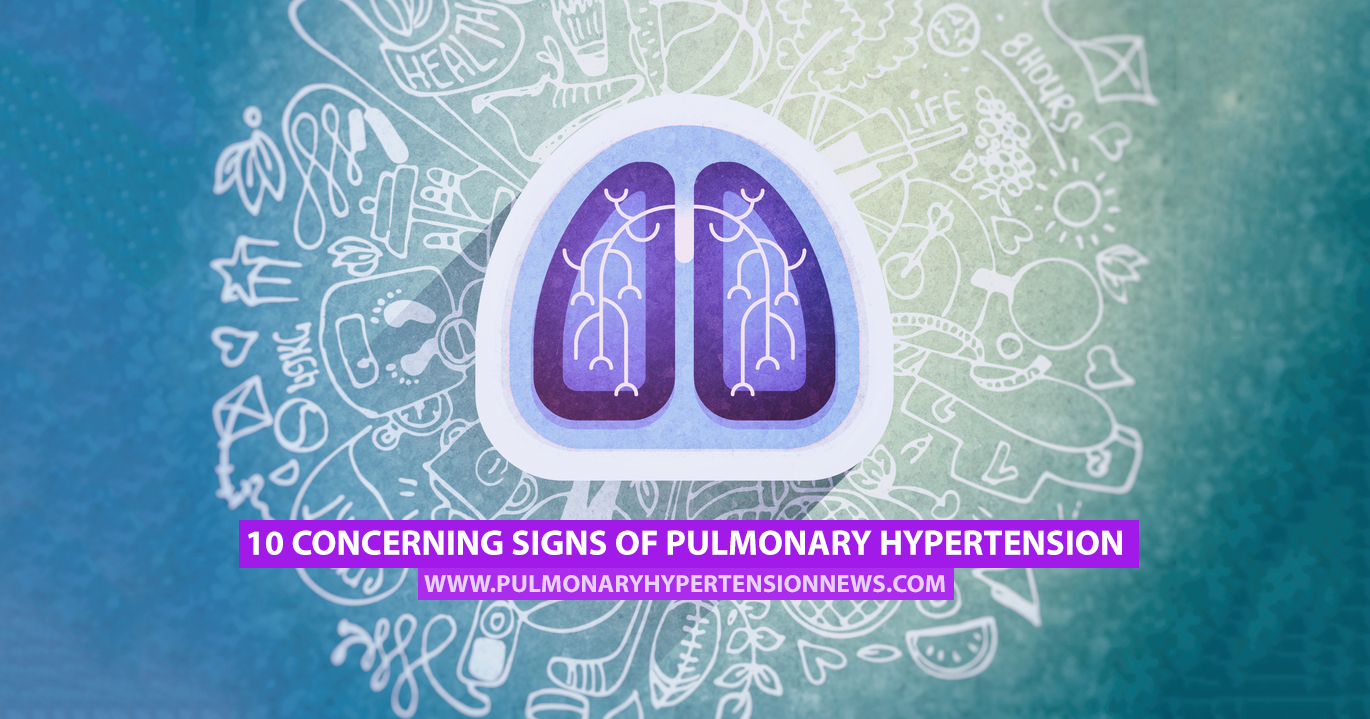10 Concerning Signs of Pulmonary Hypertension

According to the National Heart, Lung and Blood Institute, there are 10 main signs of pulmonary hypertension. While the individual symptoms on their own do not not mean you have PH, if you experience any combination of the following symptoms you should see your doctor.
MORE: Can pulmonary hypertension be prevented?
Initial Symptoms
Some of early signs and symptoms of PH include:
1. Shortness of breath: Shortness of breath is feeling somewhat winded while doing slightly physically challenging activities such as climbing stairs or walking uphill.
2. Fatigue: Fatigue, or extreme tiredness due to overexertion or illness, may occur in PH due to poorly oxygenated blood.
3. Pains in the chest area: Feeling like your chest is being stepped on or feeling a tightness around that area may be a indication of pulmonary hypertension.
MORE: The difficulties of diagnosing pulmonary arterial hypertension
4. A rapid heartbeat: Rapid heart beat or skipped beats (palpitations or arrhythmias) can be indicators of PH.
The Pulmonary Hypertension News forums are a place to connect with other patients, share tips and talk about the latest research. Check them out today!
5. Experiencing pain in the upper right-hand side of the abdomen.
6. Loss of appetite.
MORE: Six of the best apps for managing chronic diseases
Secondary Symptoms
As PH progresses, other symptoms become noticeable. They include:
7. Fainting: Faintness or dizziness can also be known as syncope.
8. Feeling dizzy or lightheaded: This may happen particularly when exercising or undergoing any physical exertion.
9. Sudden swelling in the legs and/or ankles (edema).
10. Lips and/or skin taking on a blueish tinge: Your lips or skin may turn blue, which is referred to as cyanosis (lack of oxygen in the blood).
MORE: 10 essentials to create an emergency kit for pulmonary hypertension patients
Pulmonary Hypertension News is strictly a news and information website about the disease. It does not provide medical advice, diagnosis or treatment. This content is not intended to be a substitute for professional medical advice, diagnosis, or treatment. Always seek the advice of your physician or another qualified health provider with any questions you may have regarding a medical condition. Never disregard professional medical advice or delay in seeking it because of something you have read on this website.







